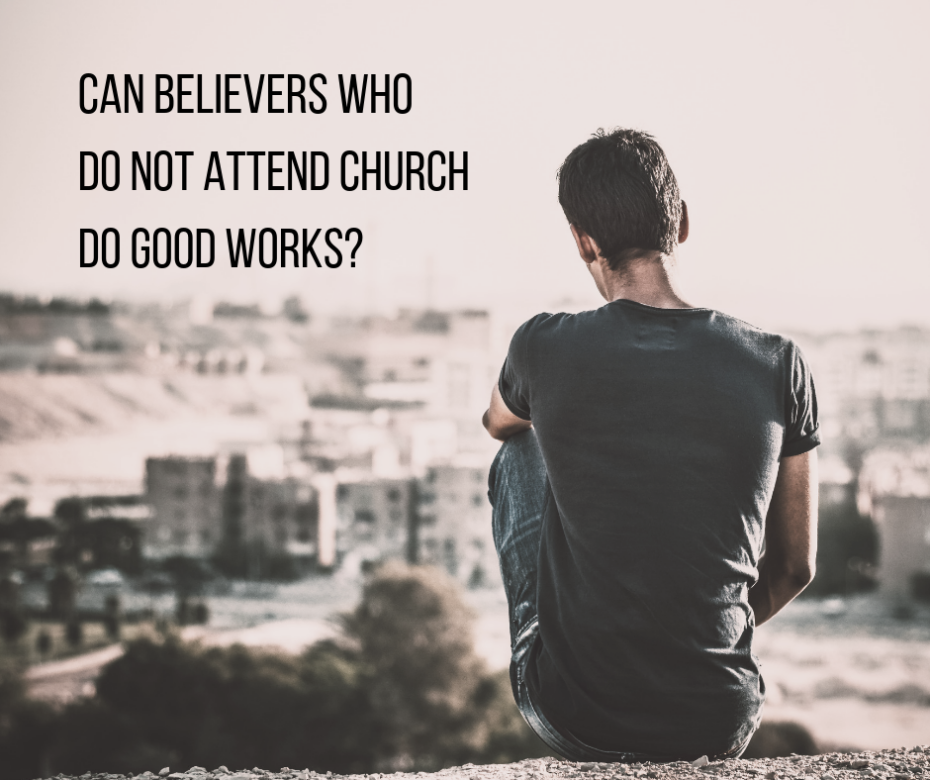In a recent blog I suggested that Eph 2:10 is about local churches doing good works and thus about believers doing good works in and through their churches. I then got this question, “Perhaps I’m reading too much into your comments about doing good works through the local church, but do you think believers who are not part of a local church cannot do good works?’
Great question.
The New Testament never discusses the case of a believer who lacks a solid church in his city. Surely there were such believers in the first century and throughout church history.
While God loves the local church and wants us to take part, even if that means just a husband and wife meeting together on Sunday morning for Bible teaching, prayer, and the Lord’s Supper, He obviously welcomes believers who are not a part of a local church to glorify Him by their good works.
I was not suggesting that good works done by someone not a part of a local church are worthless or are displeasing to the Lord. What I was suggesting is that the local church is God’s masterpiece and that it is designed to do good works that glorify Him. But sometimes godly believers, for whatever reason, are not a part of a local church. They will be rewarded by Christ for the good works which they do. Their labor for the Lord will not be in vain (1 Cor 15:58; 2 Cor 5:9-10).
Here is a slightly different question: if a believer has access to a solid Bible-teaching church and yet chooses not to take part, then will his rewards at the Judgment Seat of Christ (Bema) be negatively impacted in some way?
While the Scriptures do not directly address that question either, it seems to me that there will be some consequences at the Bema for believers who reject local church involvement for no good reason (cf. Heb 10:23-25). If God wants us to use our spiritual gifts to help others in the Body of Christ, then our failure to do so is something for which we are accountable.
I realize that some believers today minister to other believers through a Bible study, discipleship group, or home group. These small groups essentially become their church family. It gets less like church when people fellowship together online, as with those who comment on our blog. They are using their gifts to help other believers. But it is not quite like doing so face to face in church.
Hebrews 10:23-25 urges us not to forsake the assembling of ourselves together, as is the habit of some, but instead to encourage one another considering the soon return of Christ. We should strive to assemble with other believers each week if possible.
If you live in an area where there is no clear Bible-teaching church within an hour’s drive, I suggest you consider these three options: 1) move to a city where there is a solid church, 2) drive two or three hours each way once a week to attend a solid church, or 3) start a church in your home, even if it is just your family. Regarding option 3, if you are a single person, you could have church all by yourself, including the Lord’s Supper, as you pray for God to bring others. But hopefully you will find (or lead to Christ) at least one other person who can meet with you.
(I do not suggest that you attend a quasi-sound church, though that is a fourth option. A mild Lordship Salvation church might be sound much of the time. I personally would find such a church to upset me too much to take part regularly. Besides, I would not want to give money to support even a mild Lordship Salvation church.)
If you are unable to attend church because of health issues (including mental health issues like PTSD and agoraphobia), God understands and will take that into account at the Bema.
The bottom line is this: every believer is to do his best to glorify God. Normally that includes involvement in a solid local church. But if that is not possible, we are still to do our best to please our Lord and Savior.


